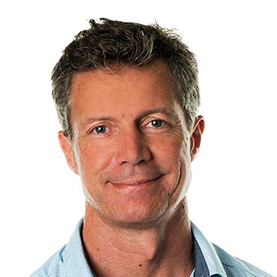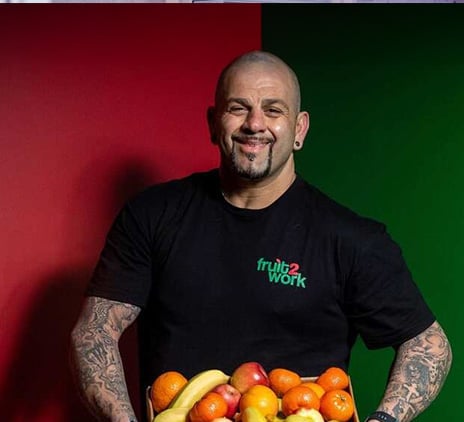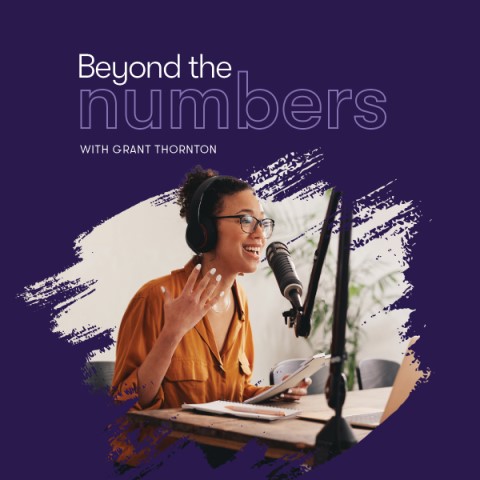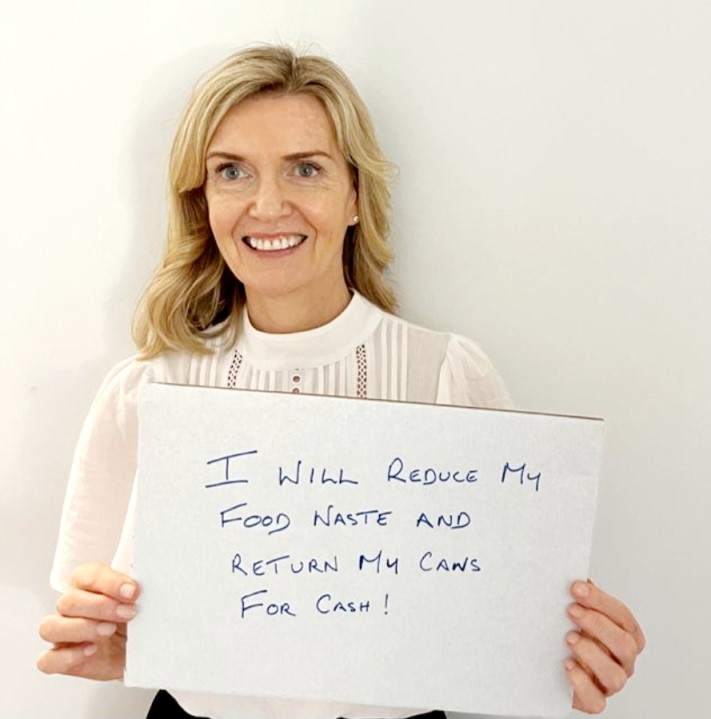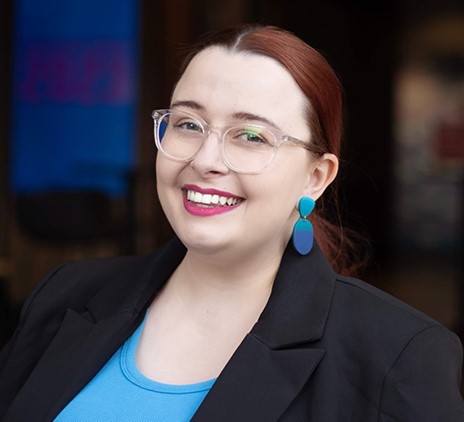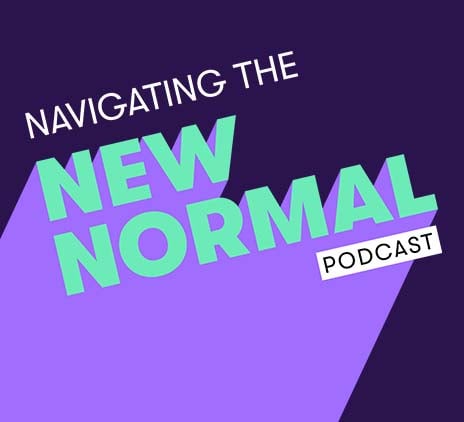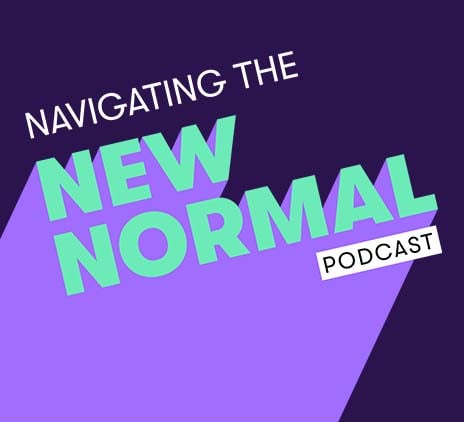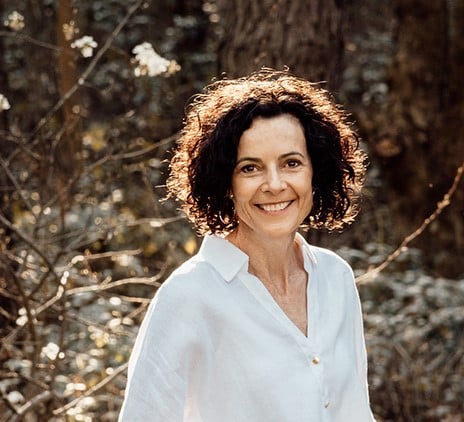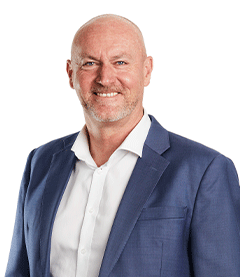- Market services
- Indigenous advisory
-
Compliance audits & reviews
Our audit team undertakes the complete range of audits required of Australian accounting laws to help you to help you meet obligations or fulfil best practice procedures.
-
Audit quality
We are fiercely dedicated to quality, use proven and globally tested audit methodologies, and invest in technology and innovation.
-
Financial reporting advisory
Our financial reporting advisory team helps you understand changes in accounting standards, develop strategies and communicate with your stakeholders.
-
Audit advisory
Grant Thornton’s audit advisory team works alongside our clients, providing a full range of reviews and audits required of your business.

-
Corporate tax & advisory
We provide comprehensive corporate tax and advisory service across the full spectrum of the corporate tax process.
-
Private business tax & advisory
We work with private businesses and their leaders on all their business tax and advisory needs.
-
Tax compliance
We work alongside clients to manage all tax compliance needs and identify potential compliance or tax risk issues.
-
Employment tax
We help clients understand and address their employment tax obligations to ensure compliance and optimal tax positioning for their business and employees.
-
International tax
We understand what it means to manage tax issues across multiple jurisdictions, and create effective strategies to address complex challenges.
-
GST, stamp duty & indirect tax
Our deep technical knowledge and practical experience means we can help you manage and minimise the impact of GST and indirect tax, like stamp duty.
-
Tax law
Our team – which includes tax lawyers – helps you understand and implement regulatory requirements for your business.
-
Innovation Incentives
Our national team has extensive experience navigating all aspects of the government grants and research and development tax incentives.
-
Transfer pricing
Transfer pricing is one of the most challenging tax issues. We help clients with all their transfer pricing requirements.
-
Tax digital consulting
We analyse high-volume and unstructured data from multiple sources from our clients to give them actionable insights for complex business problems.
-
Corporate simplification
We provide corporate simplification and managed wind-down advice to help streamline and further improve your business.
-
Superannuation and SMSF
Increasingly, Australians are seeing the benefits, advantages and flexibility of taking control of their own superannuation and retirement planning.

-
Payroll consulting & Award compliance
Many organisations are grappling with a myriad of employee agreements and obligations, resulting in a wide variety of payments to their people.
-
Cyber resilience
The spectrum of cyber risks and threats is now so significant that simply addressing cybersecurity on its own isn’t enough.
-
Internal audit
We provide independent oversight and review of your organisation's control environments to manage key risks, inform good decision-making and improve performance.
-
Financial crime
Our team helps clients navigate and meet their obligations to mitigate crime as well as develop and implement their risk management strategies.
-
Consumer Data Right
Consumer Data Right (CDR) aims to provide Australians with more control over how their data is used and disclosed.
-
Risk management
We enable our clients to achieve their strategic objectives, fulfil their purpose and live their values supported by effective and appropriate risk management.
-
Controls assurance
In Australia, as with other developed economies, regulatory and market expectations regarding corporate transparency continue to increase.
-
Governance
Through fit for purpose governance we enable our clients to make the appropriate decisions on a timely basis.
-
Regulatory compliance
We enable our clients to navigate and meet their regulatory and compliance obligations.

-
Forensic accounting and dispute advisory
Our team advises at all stages of a litigation dispute, taking an independent view while gathering and reviewing evidence and contributing to expert reports.
-
Investigations
Our licensed forensic investigators with domestic and international experience deliver high quality results in the jurisdictions in which you operate.
-
Digital forensics
Our digital forensic experts identify, preserve and analyse data in the context of reputation and regulatory enforcement issues for investigations, legal or administrative proceedings.
-
eDiscovery
In a data-driven economy, data enables commercial and economic growth, innovation, and social benefit.
-
Asset tracing investigations
Our team of specialist forensic accountants and investigators have extensive experience in tracing assets and the flow of funds.

-
Mergers and acquisitions
Our mergers and acquisitions specialists guide you through the whole process to get the deal done and lay the groundwork for long-term success.
-
Acquisition search & strategy
We help clients identify, finance, perform due diligence and execute acquisitions to maximise the growth opportunities of your business.
-
Selling a business
Our M&A team works with clients to achieve a full or partial sale of their business, to ensure achievement of strategic ambitions and optimal outcomes for stakeholders.
-
Operational deal services
Our operational deal services team helps to ensure the greatest possible outcome and value is gained through post merger integration or post acquisition integration.
-
Transaction advisory
Our transaction advisory services support our clients to make informed investment decisions through robust financial due diligence.
-
Business valuations
We use our expertise and unique and in-depth methodology to undertake business valuations to help clients meet strategic goals.
-
Tax in mergers & acquisition
We provide expert advice for all M&A taxation aspects to ensure you meet all obligations and are optimally positioned.

-
Corporate finance
We provide effective and strategic corporate finance services across all stages of investments and transactions so clients can better manage costs and maximise returns.
-
Debt advisory
We work closely with clients and lenders to provide holistic debt advisory services so you can raise or manage existing debt to meet your strategic goals.
-
Working capital optimisation
Our proven methodology identifies opportunities to improve your processes and optimise working capital, and we work with to implement changes and monitor their effectiveness.
-
Capital markets
Our team has significant experience in capital markets and helps across every phase of the IPO process.
-
Debt and project finance raising
Backed by our experience accessing full range of available funding types, we work with clients to develop and implement capital raising strategies.
-
Private equity
We provide advice in accessing private equity capital.
-
Financial modelling
Our financial modelling advisory team provides strategic, economic, financial and valuation advice for project types and sizes.
-
Payments advisory
We provide merchants-focused payments advice on all aspects of payment processes and technologies.

-
Voluntary administration & DOCA
We help businesses considering or in voluntary administration to achieve best possible outcomes.
-
Corporate insolvency & liquidation
We help clients facing corporate insolvency to undertake the liquidation process to achieve a fair and orderly company wind up.
-
Complex and international insolvency
As corporate finance specialists, Grant Thornton can help you with raising equity, listings, corporate structuring and compliance.
-
Safe Harbour advisory
Our Safe Harbour Advisory helps directors address requirements for Safe Harbour protection and business turnaround.
-
Bankruptcy and personal insolvency
We help clients make informed choices around bankruptcy and personal insolvency to ensure the best personal and stakeholder outcome.
-
Creditor advisory services
Our credit advisory services team works provides clients with credit management assistance and credit advice to recapture otherwise lost value.
-
Small business restructuring process
We provide expert advice and guidance for businesses that may need to enter or are currently in small business restructuring process.
-
Asset tracing investigations
Our team of specialist forensic accountants and investigators have extensive experience in tracing assets and the flow of funds.

-
Independent business reviews
Does your company need a health check? Grant Thornton’s expert team can help you get to the heart of your issues to drive sustainable growth.
-
Commercial performance
We help clients improve commercial performance, profitability and address challenges after internal or external triggers require a major business model shift.
-
Safe Harbour advisory
Our Safe Harbour advisory helps directors address requirements for Safe Harbour protection and business turnaround.
-
Corporate simplification
We provide corporate simplification and managed wind-down advice to help streamline and further improve your business.
-
Director advisory services
We provide strategic director advisory services in times of business distress to help directors navigate issues and protect their company and themselves from liability.
-
Debt advisory
We work closely with clients and lenders to provide holistic debt advisory services so you can raise or manage existing debt to meet your strategic goals.

-
Business planning & strategy
Our clients can access business planning and strategy advice through our value add business strategy sessions.
-
Private business company secretarial services
We provide company secretarial services and expert advice for private businesses on all company secretarial matters.
-
Outsourced accounting services
We act as a third-party partner to international businesses looking to invest in Australia on your day-to-day finance and accounting needs.
-
Superannuation and SMSF
We provide SMSF advisory services across all aspects of superannuation and associated tax laws to help you protect and grow your wealth.
-
Management reporting
We help you build comprehensive management reporting so that you have key insights as your business grows and changes.
-
Financial reporting
We help with all financial reporting needs, including set up, scaling up, spotting issues and improving efficiency.
-
Forecasting & budgeting
We help you build and maintain a business forecasting and budgeting model for ongoing insights about your business.
-
ATO audit support
Our team of experts provide ATO audit support across the whole process to ensure ATO requirements are met.
-
Family business consulting
Our family business consulting team works with family businesses on running their businesses for continued future success.
-
Private business taxation and structuring
We help private business leaders efficiently structure their organisation for optimal operation and tax compliance.
-
Outsourced CFO services
Our outsourced CFO services provide a full suite of CFO, tax and finance services and advice to help clients manage risk, optimise operations and grow.
-
ESG & sustainability reporting
There is a growing demand for organisations to provide transparency on their commitment to sustainability and disclosure of the nonfinancial impacts of their business activities. Commonly, the responsibility for sustainability and ESG reporting is landing with CFOs and finance teams, requiring a reassessment of a range of reporting processes and controls.
-
ESG & sustainability advisory
With the ESG and sustainability landscape continuing to evolve, we are focussed on helping your business to understand what ESG and sustainability represents and the opportunities and challenges it can provide.

-
Management consulting
Our management consulting services team helps you to plan and implement the right strategy to deliver sustainable growth.
-
Financial consulting
We provide financial consulting services to keep your business running so you focus on your clients and reaching strategic goals.

-
China practice
The investment opportunities between Australia and China are well established yet, in recent years, have also diversified.
-
Japan practice
The trading partnership between Japan and Australia is long-standing and increasingly important to both countries’ economies.
-
India practice
It’s an exciting time for Indian and Australian businesses looking to each jurisdiction as part of their growth ambitions.
-
Singapore practice
Our Singapore Practice works alongside Singaporean companies to achieve growth through investment and market expansion into Australia.

-
 Insight Identify your opportunities in the complex landscape of fuel tax creditsThe landscape of fuel tax credits (FTC) is constantly evolving due to ongoing economic and technological developments. This dynamic environment presents both challenges and opportunities for businesses with significant fuel consumption.
Insight Identify your opportunities in the complex landscape of fuel tax creditsThe landscape of fuel tax credits (FTC) is constantly evolving due to ongoing economic and technological developments. This dynamic environment presents both challenges and opportunities for businesses with significant fuel consumption. -
 Client Alert March 2024 Update: NSW Grants for Net Zero Manufacturing and Physical SciencesSome major NSW grant programs have been announced, supporting projects in clean technology innovation, low carbon product manufacturing, renewable manufacturing and physical sciences.
Client Alert March 2024 Update: NSW Grants for Net Zero Manufacturing and Physical SciencesSome major NSW grant programs have been announced, supporting projects in clean technology innovation, low carbon product manufacturing, renewable manufacturing and physical sciences. -
 Insight Navigating a complex Agribusiness, Food and Beverage deals landscape in 2024Despite a 14% global decline in Agribusiness, Food, and Beverage M&A deals, 2024 shows promise with expected global interest rate stabilisation. Given the sector's role in global sustainability, businesses can tap into opportunities in food manufacturing and waste minimisation.
Insight Navigating a complex Agribusiness, Food and Beverage deals landscape in 2024Despite a 14% global decline in Agribusiness, Food, and Beverage M&A deals, 2024 shows promise with expected global interest rate stabilisation. Given the sector's role in global sustainability, businesses can tap into opportunities in food manufacturing and waste minimisation. -
 Client Alert Grants: February 2024Businesses should be aware of the numerous grant opportunities available from Commonwealth, State, and private sources. These grants could be the key to making manufacturing, agriculture, and green economy projects a reality.
Client Alert Grants: February 2024Businesses should be aware of the numerous grant opportunities available from Commonwealth, State, and private sources. These grants could be the key to making manufacturing, agriculture, and green economy projects a reality.
-
Renewable Energy
Transformation through energy transition

-
Business Planning and Strategy
Having an honest, broad-reaching and thought-provoking discussion with a skilled, independent advisor can be the catalyst for clarity – a direction to take your business forward and an understanding of what is key to success.

-
Flexibility & benefits
The compelling client experience we’re passionate about creating at Grant Thornton can only be achieved through our people. We’ll encourage you to influence how, when and where you work, and take control of your time.
-
Your career development
At Grant Thornton, we strive to create a culture of continuous learning and growth. Throughout every stage of your career, you’ll to be encouraged and supported to seize opportunities and reach your full potential.
-
Diversity & inclusion
To be able to reach your remarkable, we understand that you need to feel connected and respected as your authentic self – so we listen and strive for deeper understanding of what belonging means.
-
In the community
We’re passionate about making a difference in our communities. Through our sustainability and community engagement initiatives, we aim to contribute to society by creating lasting benefits that empower others to thrive.
-
Graduate opportunities
As a new graduate, we aim to provide you more than just your ‘traditional’ graduate program; instead we kick start your career as an Associate and support you to turn theory into practice.
-
Vacation program
Our vacation experience program will give you the opportunity to begin your career well before you finish your degree.
-
The application process
Applying is simple! Find out more about each stage of the recruitment process here.
-
FAQs
Got questions about applying? Explore frequently asked questions about our early careers programs.
-
Our services lines
Learn about our services at Grant Thornton
-
Current opportunities
Current opportunities
-
Remarkable people
Our team members share their remarkable career journeys and experiences of working at Grant Thornton.
-
Working at Grant Thornton
Explore our culture, benefits and ways we support you in your career.
-
Current opportunities
Positions available.
-
Contact us
Get in touch
New expectations of business in a COVID-Safe environment
The impacts of COVID-19 will continue to be massive on businesses and individuals alike.
If what is happening in Melbourne is any indicator, then we can’t wait for COVID to pass – we have to learn to live with it. We ask Dr Ian Norton, Founder and Managing Director of Respond Global to apply his experience as a former World Health Organisation emergency physician to the current COVID pandemic, while our CEO, Greg Keith tackles how businesses – us included – have approached the new normal. So what does COVID Safe really look like? How do you know if you’re responding appropriately? And which of the COVID safe changes are temporary, and what will remain?
Available on Apple Podcasts, Spotify or within your browser
Velvet-Belle Templeman
Welcome to Grant Thornton's, Navigating the New Normal podcast series. My name is Velvet-Belle Templeman. And I'm here talking to Greg Keith, CEO of Grant Thornton Australia and Dr Ian Norton, Founder and Managing Director of Respond Global. Dr Norton is a specialist emergency physician and a global infectious disease expert and is now at the forefront of helping both the Australian governments and businesses response to COVID-19. Thanks so much for joining us, Ian and Greg.
Greg Keith
Thanks Velvet-Belle.
Ian Norton
Yeah, good to be here.
Velvet-Belle Templeman
Now Ian, you've worked at the World Health Organisation and you've spearheaded the response to international outbreaks, such as Ebola and diphtheria. What have you learned about these outbreaks that can be applied here?
Ian Norton
Well, very similar lessons I suppose, when it comes to outbreaks. It's all about bringing people along, empowering them with knowledge about what's happening and how they can keep themselves safe. And trying to get them to be part of the solution, really. We certainly found that for Ebola and diphtheria, making things relevant in their own language, in their own way of understanding. And making sure there was both pictures and video and voice and other messages, messages coming in from trusted leaders. All lessons we could learn here in COVID as well.
Velvet-Belle Templeman
Now, we're about five months into COVID-19 with no idea how long this will continue. From an individual and a business perspective, the impact has been massive. Is it possible to maintain a sense of normality when the fear of contagion is still so very real?
Ian Norton
I certainly think we have to maintain some form of normality. We know that this will go on for many more months to come. My estimation now is at least 18 to 24 months, I would say we have to live with this new COVID normal. And so we really need to learn how to live with COVID rather than wait for it to all be over and get back to normal and that certainly transfers into business as well. I really think businesses need to learn how to adapt and know how to manage when there's a large wave washing over them in their local state or territory. And then how to act differently when there's less risk and they can get back to something closer to normal. But the risk is never completely gone as we're seeing now in Europe and other parts of the world.
Greg Keith
Yeah. Look, I think, Velvet-Belle, from my side, there's things as a business leader, we can control. Such as, our environment in our office and the precautions that we take and there’s things that we can't control such as the community transmission. So really understanding that difference, and doing what we can to focus on those aspects that we as leaders can change to improve the safety of our people. And also, to ensure that our clients and customers are protected as much as possible, I think is the critical situation. Because business can't wait for 18 months or 2 years, as Ian has said. We need to be able to treat this as an opportunity to be successful. We need to have the right mindset, to take our people on their journey and also to ensure that we get through this, in a strong position, both physically and mentally at the end.
Ian Norton
Yeah, I'd really agree and maybe add something else on that, Greg. Because we can manage our risk, I think inside our business, in our manufacturing or an office setting. But it's also about making sure staff know how they can keep themselves safe home with their families and at the weekends, because that risk is transferred back into our business if they don't.
Velvet-Belle Templeman
And Ian, you're at the forefront talking to policy makers and business leaders. You would have seen in the news, some say, we're not taking this seriously enough and others say that we're being overly cautious. Is there a right or a wrong way to respond at a time like this?
Ian Norton
Yeah, no, I think it's correct. There are sort of two huge arcs of perceived risk. Some people are denying that that it's real and others are almost overly cautious. I'm a bit disappointed in a way that we haven't taken more of an overall country approach. There's certainly a lot of, I suppose, separation of their various state levels. It's the same risk across all of those, the risk effectively of the disease is similar. And I am seeing a bit of a drift away from the public health sort of rules, into more of a political overlay and that is disappointing. When it comes to business leaders though, every board sort of has a range of perceptions. Some completely worried about it and think very little of little else and others who are sort of saying we should just get on with it.
I think the true answer is in the middle and it's a bit of both and the risk changes over time in different states. And the risk right now, is obviously bad in Victoria and not so bad in West Australia. Nothing to say that COVID won't sneak in and then all of those, in a way West Australia could be at risk. Because people have sort of forgotten how to act and they have become used to that new COVID normal, where they get to do pretty much everything they want to and they're really at risk now. Because if the disease does sneak back in, then they're not well prepared to know what to do and do the right thing.
Greg Keith
It's a frightening concept. Look, Ian has been able to work with Grant Thornton, to help us to pull together a red, amber and a green scenario. So we have a set of policies and practises in the event, like Western Australia is at the moment. In that example where there's very little community transmission and as community transmission increases. And frankly, over the last little while we've been watching New South Wales very closely, we consider whether we increase to amber. Which for us means, wearing masks at reception and in communal areas and those sorts of things. Or red, where Melbourne obviously is at the moment. Where at the moment we're actually closed, but prior to that with red, you would need to wear a mask fully in the offices and following other policies that are in place. So I think we also can adapt to the different circumstances in different offices and still continue doing business.
Velvet-Belle Templeman
Business leaders, they have a responsibility to their people, to their clients, their customers, potentially their shareholders. What can they do now that they might not already be doing?
Greg Keith
So I think that the first challenge that a lot of business leaders had, was back in March this year. Where we needed to put the safety of our people ahead of profit or a dollar. And Grant Thornton along with many, many other businesses chose to act precipitously, to have our people work from home, to make sure we could protect them. And I think that's about really focusing on what's important. And people's health is more important than profits. So whilst we do need to find a path that does allow our businesses to be successful moving forward. I think making sure that you get your priorities straight, is absolutely critical for business leaders, probably more so than ever before.
Ian Norton
And I'd really agree, Greg. And that's why I was so happy to work with Grant Thornton on this. Because you could tell that, that was the attitude from the senior most leaders. It's also, I suppose, looking for leadership in all sorts of ways. Where you demonstrate to colleagues, junior colleagues, that it's okay to call in sick if you have even the lightest symptom. And that's the right thing to do, that you're willing to, or work from home. There's no pressure on people to change that behaviour and I think that's the new style of leadership we need to see more of, across Australia.
Greg Keith
So, what we learn about the disease is changing and how to respond is changing. So I also feel as business leaders, we've got a responsibility to continue to learn and to be aware and change our policies and adapt that information, knowledge into them. So rather than thinking, "Well, we've got a COVID safe plan, tick, move on." I think there's an opportunity to ask others, have conversations with other leaders, frankly borrow some great ideas and put them into your own systems as well.
Velvet-Belle Templeman
Now here's a tricky one for you. You and your business may have a strategy in place to create the right COVID safe conditions, but it only takes one person to do the wrong thing to create a new outbreak. And it might not just be one person if you count how many fines have been given for people breaking COVID safe requirements, like mask wearing or curfews. So is it even possible to be truly COVID safe?
Ian Norton
Well, yeah, it is a tricky one though. It is about behaviour change and cultural change. I suppose, that's the reason why we're seeing fresh outbreaks occur around the world. It's where people start to forget the rules. Perhaps they didn't buy into them, they might not have believed them fully. There are those amongst us, perhaps a younger generation who feel that they're a bit invincible in all things, but particularly around COVID. They see it as a disease that's only scary for older people. So all of those factors come into play and so, you can manage your own risk personally, but it's also about the risks that others are taking and not giving you, your personal space, coming into your 1.5 metre sort of distance.
And it's also, I suppose, how can you drive change as an individual? One of the ways that I could suggest it is, if you have a choice to go down the street, and eat at various restaurants, if you can in your city at the time. Then choose to go in and spend your money in a place that's doing the right thing and you'll see that change over a period of time. They'll see that, business goes with those who are doing the right thing, and people avoid the places that are doing the wrong thing. Then hopefully we'll see some change because of that as well.
Greg Keith
And I think there's an element of the culture of the organisation that'll drive those behaviours. So, if the culture of the organisation is one where people have the opportunity to call out behaviours, regardless of right or rank in an organisation. Where people are supportive of one another, where people lead from the front, then you can really create an environment where people want to protect each other. Cultural change is always complex and difficult, but I do believe that if you focus on the culture of the organisation, then you can improve the chances of having a situation where the business is COVID safe.
Velvet-Belle Templeman
And Greg, Grant Thornton has recently implemented a raft of changes to ensure that it is COVID safe for staff to return. What were the steps that you took and how has this been received by your people?
Greg Keith
Yeah, look Velvet-Belle, it's been a journey, I've got to say, over the last few months. Because it's truly a new experience and there's no sort of playbook to refer to. So what we did to start off was we surveyed our people. We were really worried about their mental health, but also to understand what it was that worried them and to make sure their voice was heard. And their concerns were addressed in anything we did moving forward. Because we wanted to not only create a safe environment for our people to return to, but we wanted them to have confidence that it was safe. So we started off with that survey and from that, we found out there was a number of areas that they had some fear and trepidation, particularly around things like public transport, travelling to work. So for us, that was a bigger issue in the larger cities, where people weren't driving to the office. So, Melbourne, Sydney, in particular and then there was issues around whether or not the organisation was COVID safe and whether their colleagues will be as compliant as them.
So, we ended up breaking it into six areas that we focused on. The first was for us to bring in a whole new raft of policies on things that reinforced the essentials, like social distancing and when people should be coming in and out of the office, when they should be wearing masks. The processes when you come into an office around, washing your hands, cleaning your desk, eating meals, et cetera. Then we needed to look at some infrastructure. So for us, we chose we wanted to temperature check, not only our people, but also any guests or clients into the office. So we invested in some of the technology where you can just walk up and it detects within .2 of a second. But it avoids having to have something pointed at your head and have a member of your team be within 1.5 metres. Then we looked at some new technology. So we had to develop an app that was specific to our business that allowed us to ascertain how many people in each team could be in, to ensure social distancing and so, people literally book a desk to come in.
We developed training courses with the help of Ian and that was to really provide people with information around COVID, as to why. But also, around our policies and also around the green, amber, red. And so it gave people the opportunity to really improve their knowledge and understanding of how we were tackling it, and getting confidence. We had to tailor our approach because we were absolutely cognisant of what was happening in each state was different. So we needed to ensure that we connected at each one of those. And in so doing, we had to bring in a communications plan. So we looked at each of those six areas and worked our way through that.
Frankly, we used Dr Norton on the call here today to help us. Because we weren't really sure what we were doing was right and we felt that consulting with an expert would give us more confidence that we were right. But it would also give our people confidence of what we were doing was right and that was a critical component. It wasn't just, being COVID safe. It was actually giving people confidence. That's been our journey and to date, that transparency has been well received. Our people appreciate that we are putting them first and their safety first and that we do we care about our people and our clients. And I think that the feedback has been really strong in that regard.
Velvet-Belle Templeman
That's great news. Now, Grant Thornton is in an office and your people can work from home and alternate more easily. Is the strategy different, if you operate in assembly line or you're in construction, or you provide a hands-on service like physio or hairdressing? The arts for instance, has been hugely impacted because they need crowds to create the experience. Can all industries be COVID safe?
Greg Keith
Yeah. So I can give you a couple of examples, but I certainly think, I mean, he's actually consulted by all sorts of industries and specialists, surely he'll have something to say as well. But I can just give you the examples from my own family. I've got three children. One of which is an interior designer, who's working on some overseas projects and working from home to do that and she's able to do that in that environment. Whereas my son's a podiatrist and as such, he's working within 1.5 metres of people to apply his trade. So, clearly making sure he has appropriate PPE and training is absolutely critical. And then my third daughter is a speech pathologist working in the hospital system. She's consulting with a number of patients now through telehealth. So she's certainly been able to reduce that risk by using technology, and yet she's also on the wards. And so in that case, she's once again relying very much on PPE and training.
So for them, I think there's been a balance of, and in different industries, I think it's around education, equipment, discipline, collaboration, and probably a good dose of good luck, as well. But Ian, I'm not sure if you have some comments. I know you've been heavily involved in a range of industries.
Ian Norton
Yeah, certainly there are there other industries that really, it is hands on when it comes to manufacturing. The meat industry is a good example or fish and chicken and sorting houses. These kinds of places, that you do need people physically moving through and working in fairly close proximity. Certainly, everyone can have some sort of COVID safe plan in place, and they can adapt their work to continue. I think definitely cohorting of teams to team A, B and C or whatever, is relevant for your own particular business. And making sure that if there is unluckily, an infection in one, it doesn't put all people out of work at the same time. You won't lose your entire staff workforce for 14 days for home isolation, which could effectively cripple or even end a business. And there are ways that you can have them work normally, wearing the right PPE. But then clean and have a changeover of staff for the next shift and the next shift, is possible.
So also understanding, I think the science and the emerging science around the virus. So there are things we do know about and we can use what we know about it to our advantage in business. I think sometimes it doesn't just jump off the pages of the public health websites. But I think, once you understand that public health background and then apply it to a business setting, we absolutely can get more COVID safe. Can we be 100% COVID safe in every industry? Perhaps not, but certainly we should be able to put in place mitigation strategies, so if it does affect you, it doesn't end your business.
Greg Keith
I think also we need to understand that if leaders choose to ignore their responsibilities and something does happen, there's some likelihood you'll actually have the authorities come in, and they may well ask to see you're COVID safe plan. They may well choose to see how that's been enacted and how it's been enforced. So I don't think this is just a nice to have, I think it's a legal requirement that we have to also step up too.
Velvet-Belle Templeman
And Greg, from implementing a strategy yourself, what advice would you give to anybody currently trying to make their business COVID safe?
Greg Keith
From our experience in engaging with the clients. The first thing we suggest is that you think yourself about what's unique about your business or your industry. Because you actually know your industry better than anyone else and so really understanding what's peculiar to your businesses is absolutely critical. I think there are often people in your industry that you don't directly compete with and what we've seen with COVID is a very strong willingness for people to cooperate and collaborate and to share. And so by reaching out to them, there's every chance that you'll find someone who's prepared to have that conversation and share what they're doing and what you're doing to assist.
I think then, when you're looking at your COVID safe plan, making sure that you've got the right people who actually have resources and authority to create change and influence others and have that tone from the top. So that you don't just have a great plan, but you actually have a plan that people are bringing into place, is important. As mentioned before, I just sort of recap on the importance of listening to your people and understanding what barriers they may see in bringing it to life because they're critical in this process. And then there's just those six headings I mentioned before being policies, infrastructure, technology, training, tailoring for the different locations or circumstances and the communications plan.
Velvet-Belle Templeman
And finally, I have to ask, COVID safe, temporary measure or permanent shift in how we work?
Greg Keith
Well, this will be my thoughts. I really hope that masks, temperature checking, and enforced restrictions, of office attendance is soon a thing of the past. Be that, 18 months or so away, I'd be happy to see the back of that. I see elements of social distancing and sanitisation and cleanliness being extended. I think it's becoming more entrenched, but regrettably I suspect it might drop back a bit over time. I see working flexibly as permanent. Just over 80% of our people telling us in surveys, that they now want to work two to three days a week. I don't see that ever going back. I suspect that flying interstate or overseas for a meeting will decrease in future and that the willingness to have meetings virtually is significantly increased. I see us using national resources better as a permanent change. As we've now got more confidence in working with people remotely, rather than relying on the people who you can physically see or have in the room.
I think there is going to be a shift in how we use offices and also, I suspect there's going to be a permanent shift in dress code, with people much more relaxed. And the time of even wearing a suit and tie may be challenged by this process. And the last one is, I honestly hope that Zoom drinks on a Friday night are never superseded with having a laugh and a catch up with friends face to face. As I sit here in isolation, I longingly look forward to being able to catch up with some of my friends.
Ian Norton
Yeah, I'd certainly agree with there are some temporary measures that we would be glad to see the back of. I do think we've got to be cautious of COVID fatigue, creeping in too soon because we're not there yet. As soon as we see some of that fatigue coming in, it drops our guard and the public health measures drop away, then it will exploit that gap, until it's over with, as I say in 12 months or more from now.
But certainly, I hope that there's some other legacy that lives on. I mean, washing hands, we know from African context, in Ebola for example, there was only one third of the number of deaths in the years of Ebola from other diarrheal disease in kids. So the fact that everybody was washing their hands because their fear of Ebola saved a whole lot of lives of kids who could have died from other forms of disease. And in general, if we all wash our hands more often, it's such a simple and cheap way to keep healthier. So I hope that that stays around long afterwards.
I fully agree with Greg on the working from home, more of a work life balance, I hope. Certainly from a health side, telehealth, telemarketing, and those other things are going to be the norm. Not flying interstate for a one hour meeting and those kind of things. I hope some of the nationalism dies away. There's a good part about it, which is buying local and supporting people in your community and then there's the bad part, which is sort of trying to gain all the personal protective equipment just to your state or to your country and not worrying about anybody else. I hope that that fades away as we get beyond this.
Velvet-Belle Templeman
Ian and Greg, thank you for your time.
Greg Keith
Thanks Velvet-Belle.
Ian Norton
Thanks.
Velvet-Belle Templeman
If you liked this podcast and you'd like to hear more, you can find and subscribe to Grant Thornton Australia on iTunes, Spotify, or SoundCloud. I'm Velvet-Belle Templeman, and you're listening to Boardroom.Media.
Dr Ian Norton
Dr Ian Norton, founder and Managing Director of Respond Global, is a specialist emergency physician and a global infectious disease expert with post-graduate qualifications in Surgery, International Health and Tropical Medicine. Ian was head of the WHO’s Emergency Medical Team (EMT) Initiative in Geneva from 2014-20. During this time, he led responses to Ebola, Diphtheria and Measles outbreaks as well as to earthquakes, cyclones, and war zones. Ian is the lead author of the current WHO Global Classification and Standards for medical teams deploying to disasters. Ian established Respond Global as a social enterprise in early 2020 with the aim of empowering others to be able to plan, prepare and respond to health emergencies in their own countries.



























